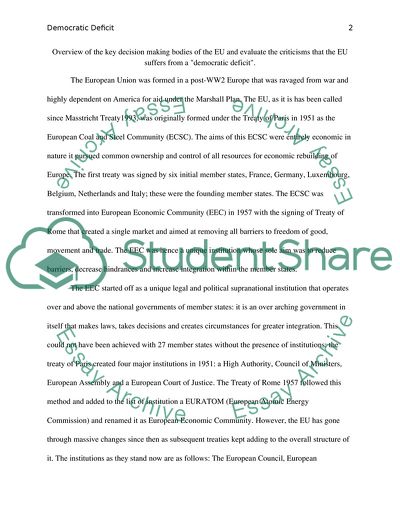Cite this document
(Decision-Making Bodies of the EU and Democratic Deficit in the EU Essay Example | Topics and Well Written Essays - 1500 words - 1, n.d.)
Decision-Making Bodies of the EU and Democratic Deficit in the EU Essay Example | Topics and Well Written Essays - 1500 words - 1. https://studentshare.org/politics/1765168-does-the-eu-suffer-from-a-democratic-deficit
Decision-Making Bodies of the EU and Democratic Deficit in the EU Essay Example | Topics and Well Written Essays - 1500 words - 1. https://studentshare.org/politics/1765168-does-the-eu-suffer-from-a-democratic-deficit
(Decision-Making Bodies of the EU and Democratic Deficit in the EU Essay Example | Topics and Well Written Essays - 1500 Words - 1)
Decision-Making Bodies of the EU and Democratic Deficit in the EU Essay Example | Topics and Well Written Essays - 1500 Words - 1. https://studentshare.org/politics/1765168-does-the-eu-suffer-from-a-democratic-deficit.
Decision-Making Bodies of the EU and Democratic Deficit in the EU Essay Example | Topics and Well Written Essays - 1500 Words - 1. https://studentshare.org/politics/1765168-does-the-eu-suffer-from-a-democratic-deficit.
“Decision-Making Bodies of the EU and Democratic Deficit in the EU Essay Example | Topics and Well Written Essays - 1500 Words - 1”. https://studentshare.org/politics/1765168-does-the-eu-suffer-from-a-democratic-deficit.


